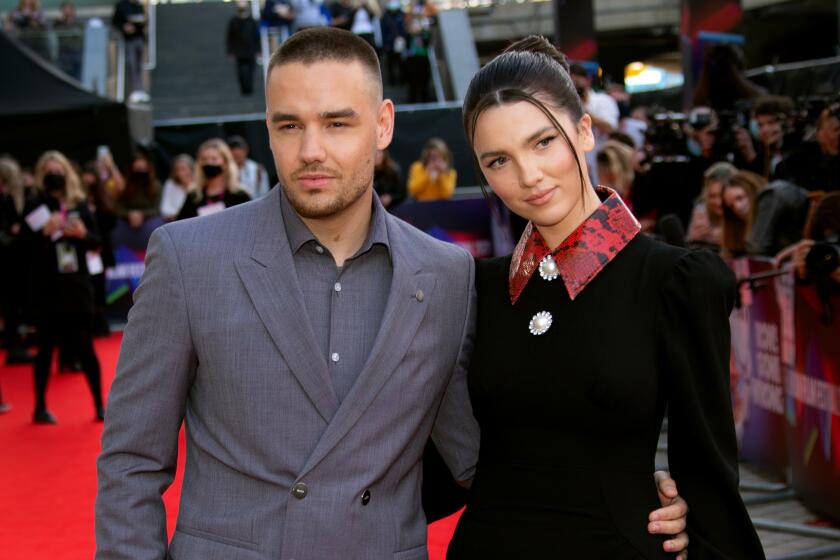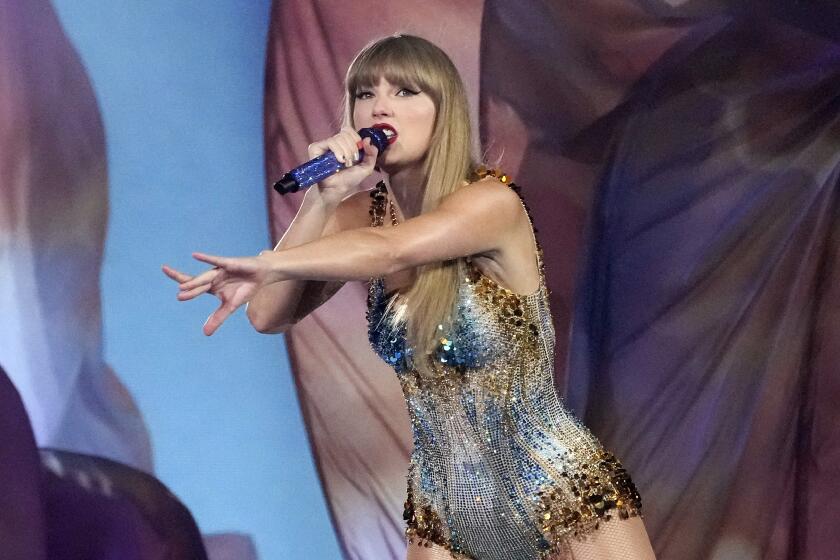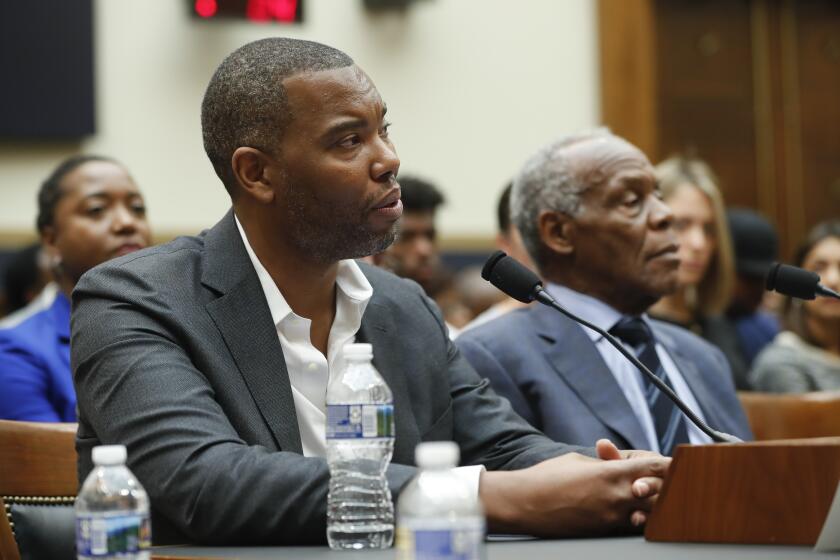Where a Range Is Not a Stove : COWBOYS ARE MY WEAKNESS, <i> By Pam Houston (W. W. Norton: $19.95; 171 pp.)</i>
Not long ago, I spent some time in India, living in a village few Americans had ever visited. Our cook was a young woman named Karuna, so shy her own aunt had never heard her voice. In the evenings, after dinner, Karuna would come to our table, and in an almost inaudible voice, ask us about America. Inevitably the questions were about the West. “Are there still cowboys in America?” she would whisper. “And do they still have guns in their pockets?”
Time and again the subject came up. The mythology of America, I came to realize, was inextricably bound up with the notion of the cowboy, the legendary figure celebrated in movies that have traveled the world.
In “Cowboys Are My Weakness,” a brilliant first collection of stories by Pam Houston, a part-time hunting guide and writer from Utah, cowboys--as one might guess from the clever title--figure in almost every story. Houston diligently sifts through what remains of the mythology. The result is a dozen stories that strike at the heart, and end up revealing much about the complex state of relations between men and women.
These stories are in fact women-centered tales; in each one a female relates the story. But what females they are! They raft wild rivers, stalk big game in Alaska and single-handedly build snow caves at 20 degrees below zero. They also inevitably engage in a quest to find the mythical man, a cowboy worthy of their affection.
“I have a picture in my mind,” the title story begins, “of a tiny ranch on the edge of a stand of pine trees with some horses in the yard. There’s a woman standing in the doorway in cutoffs and a blue chambray work shirt, and she’s just kissed her tall, bearded and soft-spoken husband goodby. There’s laundry hanging outside and the morning sun is filtering through the tree branches like spiderwebs.”
Nice picture, but it’s just that, a fabrication, not reality. “I’ve always had a thing about cowboys,” the narrator goes on to say, “maybe because I was born in New Jersey. But a real cowboy is hard to find these days.” For a while, she thinks she’s discovered her man in Homer, until she has to face the fact that “even though Homer looked like a cowboy, he was just a capitalist with a Texas accent who owned a horse.”
What makes the story more than just a bittersweet lament on the impossibility of dreams matching reality is the feistiness of the narrator; she surmounts her illusions, moving beyond Homer, as well as Monte, the genuine cowboy who whisks her off to the stock-grower’s ball (“I’d love to give you a great big kiss,” he tells her at the end of the evening, “but I’ve got a mouthful of chew”). In the end, she is lifted beyond fantasy, and drives off into a real world where women make their own decisions and lead their own lives, with or without men.
It’s an enduring theme for Houston, the capacity of women to endure romantic disappointments, to overcome the reticence of men who can’t, or won’t, make commitments. These women realize, with sorrow as well as irrepressible humor, what a yawning gulf they’ll have to cross to be with a man.
In the story “Dall,” a woman follows her lover to Alaska, where they become big-game guides, stalking Dall sheep with trigger-happy hunters until a fistfight destroys their uneasy alliance. The two women in “Highwater” struggle to come to terms with the slippery men they love; in the end, it’s friendship that triumphs, the friendship of women.
One of my favorite stories, “In My Next Life,” also deals with friendship of women, this time between a horse-trainer dying of cancer and her adoring protege. It’s a story that risks a lot, walking a thin line between sentimentality and loopy new-age philosophy, but Houston doesn’t falter in her vision, and the result is an unusually affecting love story.
Houston claims for women the terrain staked out by male writers from Hemingway to Richard Ford. She takes women into grand spaces, both emotional and physical, and isolates them until there’s nothing left to do but sit down and take a hard look at one’s soul. Her women make mistakes; they’re fools for love, but they’re also gutsy, savvy and sure.
She’s a writer who seems to defy the unwritten rule that says fiction must be wrung out of suffering, that a voice comes only after years and years of work. Her voice is so “there,” so perfectly natural, it’s as if she simply found it one day, wholly formed and perfect, like an arrowhead picked up while walking through the desert.
When I finished these stories, I thought of Karuna, that shy girl so far way, and how I would like to send them to her. Nothing I can think of would tell her more about cowboys today. She’d also learn a lot about the current state of relations of women and men in America, about how far we’ve come, and how far we’ve yet to go.
More to Read
Sign up for our Book Club newsletter
Get the latest news, events and more from the Los Angeles Times Book Club, and help us get L.A. reading and talking.
You may occasionally receive promotional content from the Los Angeles Times.









